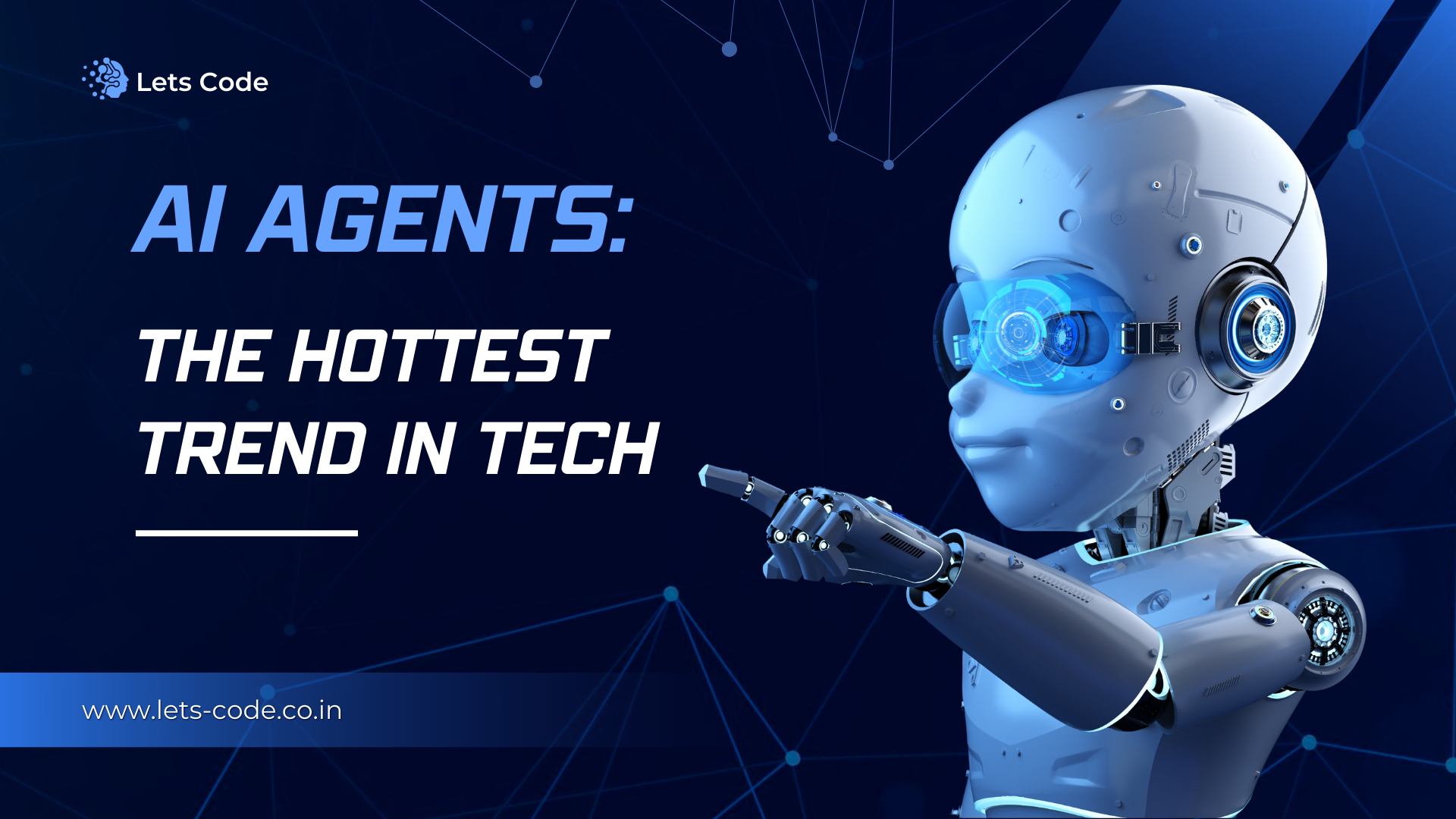
Everything You Need to Know About AI Agents: The Hottest Trend in Tech
AI agents are the talk of the town right now, and for good reason. They’re not just another buzzword—they’re reshaping industries, automating complex tasks, and pushing the boundaries of what artificial intelligence can do.
If you’ve been hearing about them and wondering what the fuss is all about, you’re in the right place. In this blog post, I’ll break down what AI agents are, why they’re impactful, the challenges they bring, and how you can start learning about them. Plus, I’ll throw in some real-world examples to make it all stick. Let’s dive in!
What Are AI Agents?
Imagine a digital assistant that doesn’t just answer questions but actually does things for you—autonomously. That’s an AI agent. Unlike traditional AI models that respond to prompts or perform single tasks, AI agents can reason, plan, and act on their own to achieve specific goals. They’re designed to handle multi-step processes, make decisions, and even learn from their experiences.
For example:
- A customer service AI agent can handle a full support ticket: understand the issue, check the database, suggest solutions, and follow up—all without human intervention.
- In data analysis, an AI agent can sift through massive datasets, identify patterns, generate reports, and even make predictions.
Think of AI agents as software entities with a mission. They’re not waiting for instructions at every step; they’re proactive, goal-oriented, and capable of adapting to new information.
Why Are AI Agents Impactful?
AI agents are more than just a tech upgrade—they’re game-changers. Here’s why they’re making waves:
- Automation on Steroids
AI agents can automate entire workflows, not just individual tasks. This means businesses can save time, reduce costs, and minimize human error. For instance, in marketing, an AI agent can manage a campaign from start to finish: segment audiences, create content, schedule posts, and analyze performance. - Efficiency and Scalability
They work 24/7 without breaks, handling repetitive or data-heavy tasks at lightning speed. This allows companies to scale operations without scaling their workforce proportionally. - Personalization at Scale
AI agents can analyze user behavior and preferences to deliver hyper-personalized experiences. In retail, for example, they can recommend products, offer discounts, and even predict future purchases based on past behavior. - Decision-Making Support
By processing vast amounts of data, AI agents can provide insights that help humans make better decisions. In healthcare, they can assist doctors by analyzing patient data and suggesting treatment plans.
Types of AI Agents
There are various types of AI agents, each designed for specific levels of intelligence and autonomy:
- Simple Reflex Agents – Act only based on current perceptions (e.g., a thermostat).
- Model-Based Agents – Use a model of the world to handle complex decisions.
- Goal-Based Agents – Take actions based on desired outcomes.
- Utility-Based Agents – Consider the most beneficial outcome before acting.
- Learning Agents – Improve their performance over time using data.
Popular AI Agent Frameworks & Tools
If you’re excited to explore or build AI agents, here are some tools to get you started:
- LangChain – A framework for developing applications powered by language models.
- AutoGPT – An open-source tool that creates fully autonomous AI agents using GPT.
- BabyAGI – Lightweight agent that recursively builds and prioritizes tasks.
- CrewAI – A framework to create multi-agent systems that can collaborate like teams.
- Microsoft Semantic Kernel – Integrates LLMs with plugins to create intelligent agents.
Learning Resources for AI Agents
If you’re interested in exploring AI agents further, here are some valuable resources:
YouTube Video
How to Build & Sell AI Agents: Ultimate Beginner’s Guide
LangChain’s Harrison Chase on Building the Orchestration Layer for AI Agents | Training Data
Introductory Material
- “Prompt Engineering for LLM Agents” course on Coursera – Designing effective agent instructions
- “Autonomous AI Agents” by Lilian Weng (Anthropic blog) – Excellent overview of agent architectures
Code and Frameworks
- LangChain Documentation: https://python.langchain.com/docs/get_started/introduction
- AutoGPT GitHub Repository: https://github.com/Significant-Gravitas/AutoGPT
- CrewAI: A framework for orchestrating role-playing autonomous AI agents
AI agents are not just hype—they’re reshaping how businesses operate. By 2026, 82% of companies will integrate them into workflows . The key? Start experimenting now—whether through no-code builders or enterprise platforms like Salesforce Agentforce.
Join our AI community to learn and grow together!
Lets Code
Contributing Writer